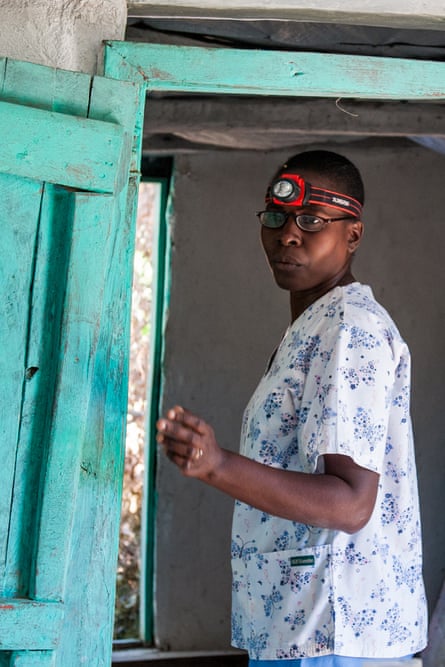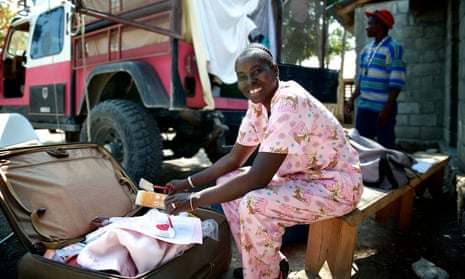I used to work in a clinic as a nurse and it was frustrating when women came in about to give birth and I couldn’t do anything to help them. We had to transfer them to another hospital. I decided to become a midwife so I could do something for these patients.
There’s a shortage of midwives in Haiti. A World Health Organisation report found there are only 201 nurse-midwives for a population of 10 million. A lot of trained midwives find jobs outside Haiti once they have that qualification, in French-speaking places. There’s only one school in Port-au-Prince.
If there’s no midwife available, women give birth with the help of a traditional birth attendant. Once when I was a nurse I was called to a delivery of twins. One of the babies’ feet was out and the traditional birth attendant tried to push the leg back in to try and turn the baby. They had to transfer that lady to the hospital. The first baby died but the second one was alive, and the mother was ok.
I’ve now trained with Midwives for Haiti, an NGO that runs a school for Haitian nurses to become skilled birth attendants in rural Hinche. I feel proud that I help mums and babies to survive. A lot of women used to die in childbirth but now that doesn’t happen so much. And the mums feel really happy because they have people that come to care for them.
My proudest moment was when I had a patient who was pregnant with her sixth child. She was having a long labour and when he came out the baby couldn’t breath so they had to resuscitate him. The mother and the baby survived, so that made me proud.

The most difficult moments are when I see a case where I can’t do anything. For example, I remember when I was on a night shift a patient who had been operated on for abruption was in shock because she was severely anaemic. She ripped the tube out of her hand. The doctor said we had to give her more blood but there was none of her type at the Red Cross.
Her blood pressure was going down. So I spent the whole night with her to try and get her blood pressure up. I wanted to transfer her to another hospital but her parents didn’t want her to go. They thought she was ill because of bad spirits. They wanted to take her home. I tried to talk to the parents, tell them the hospital was her only hope and that she had to stay here. But they took her home and on the way she died. That moment made me really sad.
What’s difficult is that some mothers don’t want to do family planning because they think it will make them sick. They have a lot of babies but no money to take care of them. And sometimes the pregnancy is a risk because they are teenagers. We do education on family planning and explain how it will help them.
We have 22 mobile clinic sites that we go to every month. Hundreds of women come to see us. Sometimes I don’t get home until really late. It’s a bit difficult because I have three children myself and before I go to work I have to get the kids ready for school. My husband helps sometimes but he doesn’t have a job.
I get very tired but when I remember the help and care we are giving to the patients, that encourages me to work harder and faster. I don’t mind because I like to care for the women.
Marie Lerrecile Charles trained with Midwives for Haiti.
Join our community of development professionals and humanitarians. Follow @GuardianGDP on Twitter. Join the conversation with the hashtag #SheMatters.

Comments (…)
Sign in or create your Guardian account to join the discussion